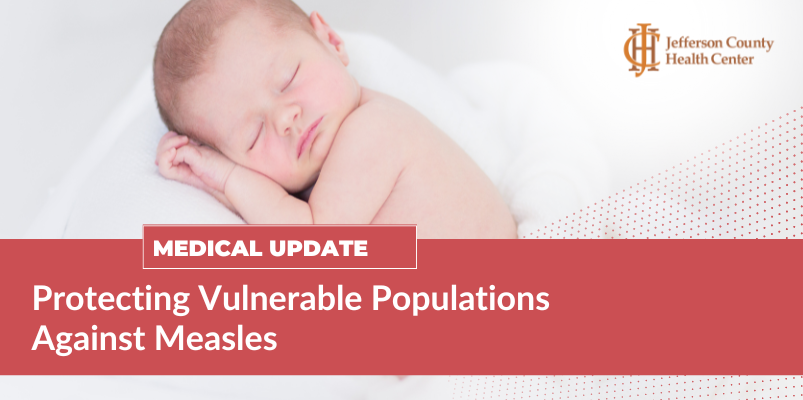Herd Immunity: Protecting Those Who Can’t Be Vaccinated
July 28, 2025

Measles doesn’t just pose a risk to unvaccinated individuals—it endangers entire communities, especially people who cannot safely receive the vaccine. Herd immunity serves as a critical public health defense, protecting the most vulnerable among us.
Who Can’t Be Vaccinated?
Some individuals are medically ineligible for the MMR vaccine, including:
- Infants under 12 months old
- People with severe immunodeficiency (e.g., undergoing chemotherapy)
- Those with severe allergies to vaccine components
- Pregnant women
Because these individuals rely on others for protection, maintaining high community vaccination rates is essential.
What Is Herd Immunity?
Herd immunity occurs when a large portion of the population is immune to a disease, making it harder for the virus to spread. For measles, this threshold is around 95%. When herd immunity is strong, it protects individuals who are at increased risk of serious illness or cannot be vaccinated at all.
Why It Matters
Even one case of measles in a community with low vaccination rates can cause an outbreak that puts infants, cancer patients, and others at risk. Vaccinating yourself is a form of social responsibility—it’s how we protect those who can't protect themselves.
Talk to your Healthcare Provider about how you can protect yourself and family from measles.
Sources:
Centers for Disease Control and Prevention. (2023). MMR vaccination: Who should not get it. https://www.cdc.gov/vaccines/vpd/mmr/public/index.html
World Health Organization. (2022). Immunization coverage. https://www.who.int/news-room/fact-sheets/detail/immunization-coverage